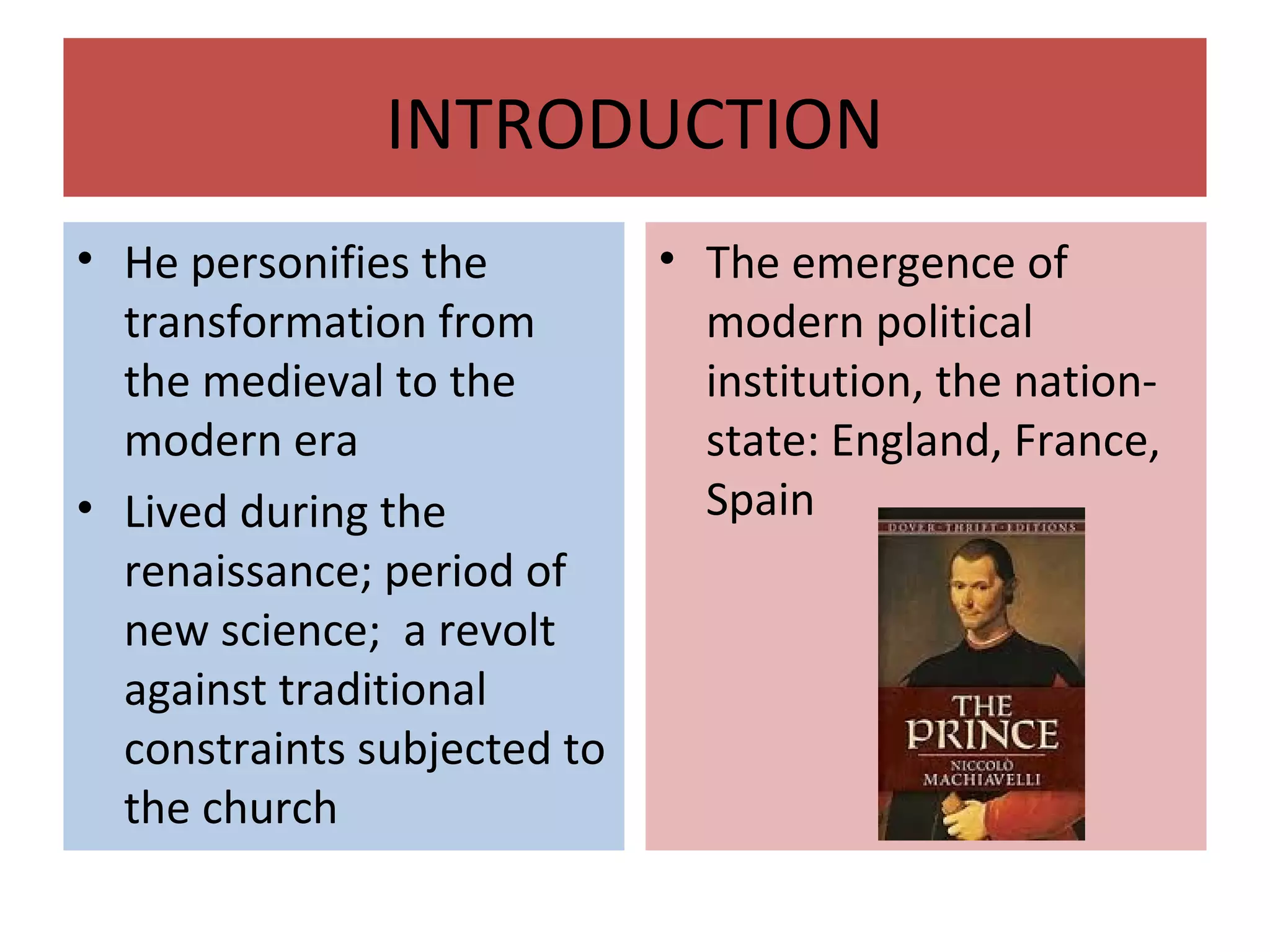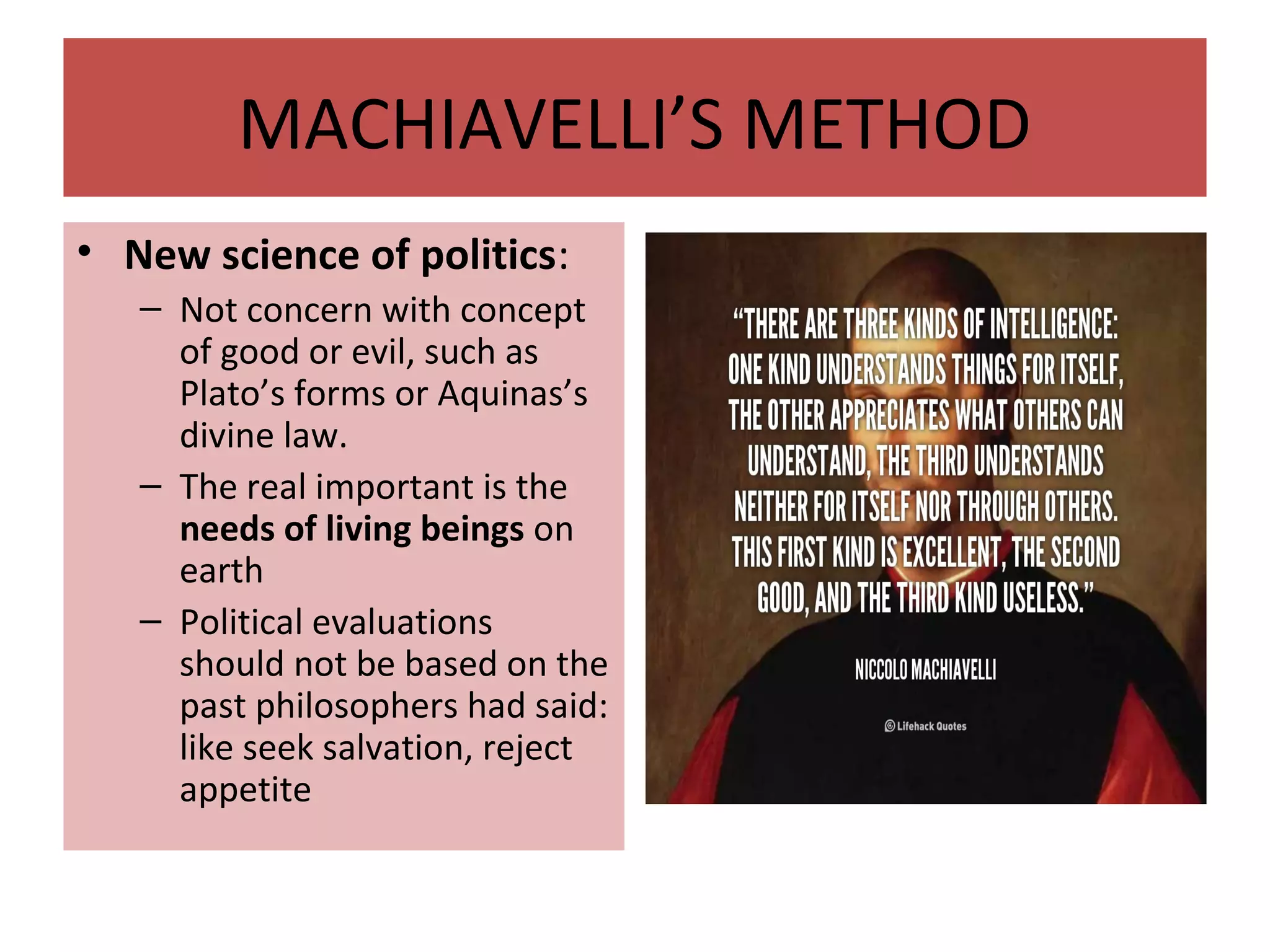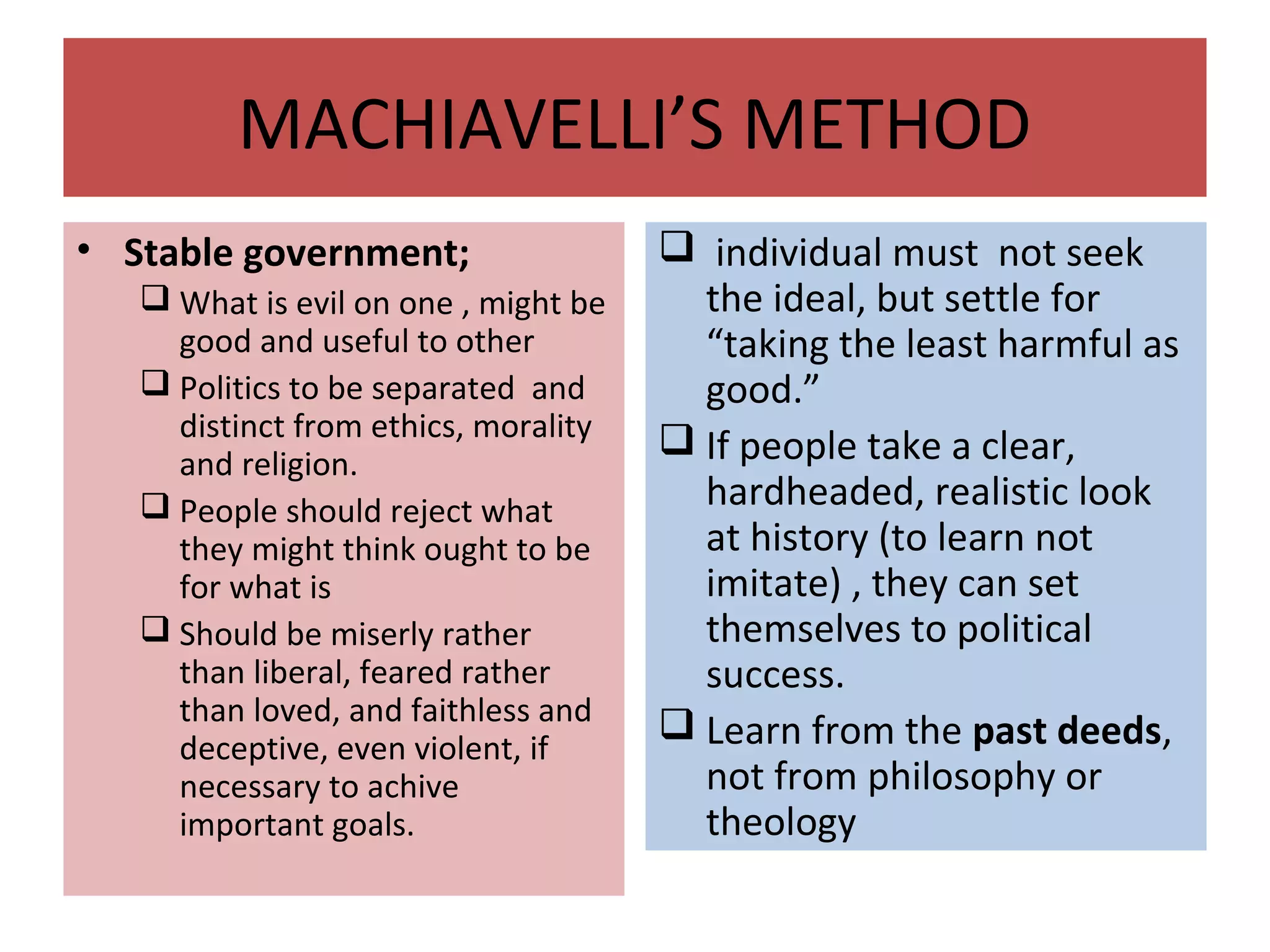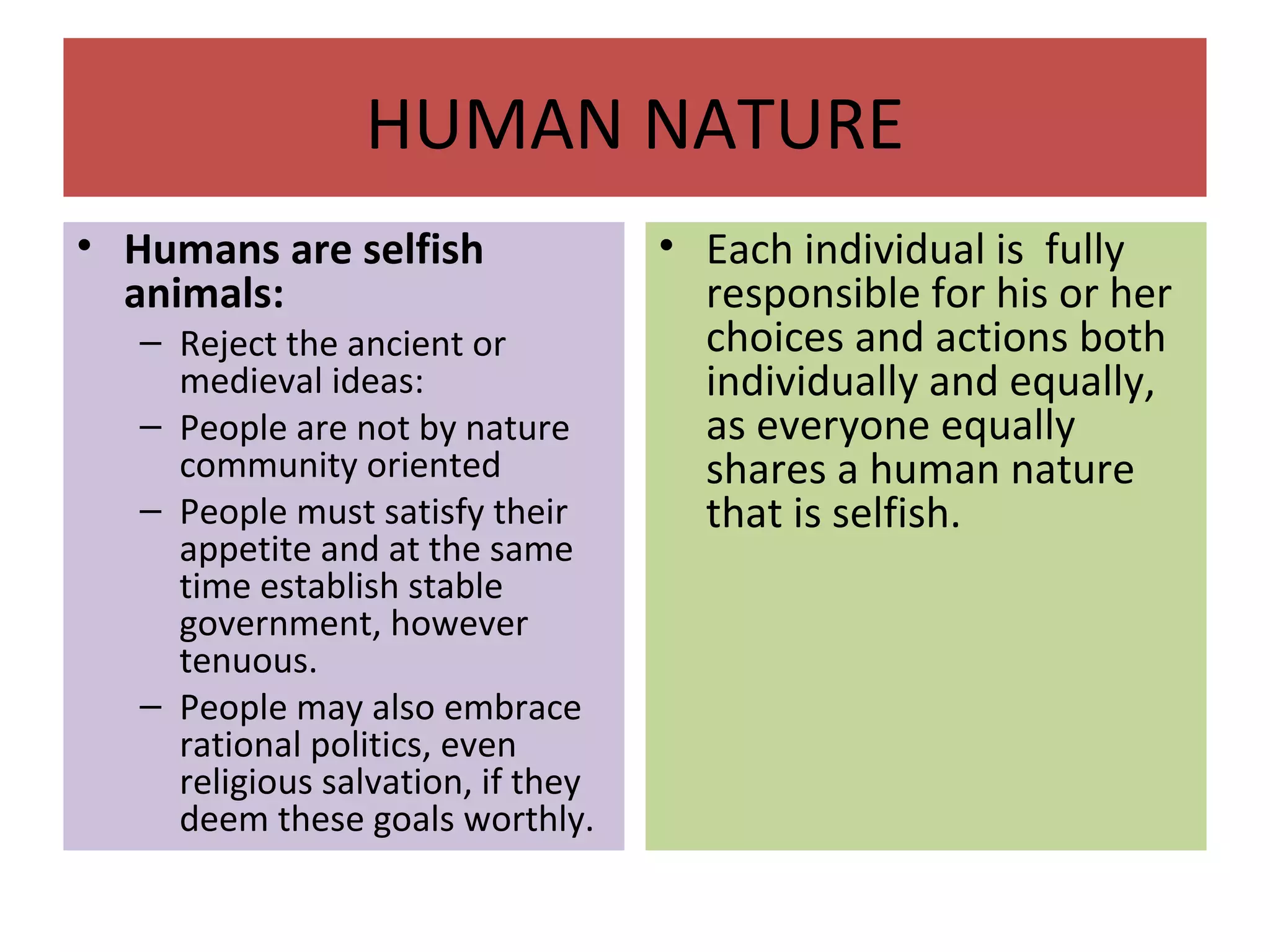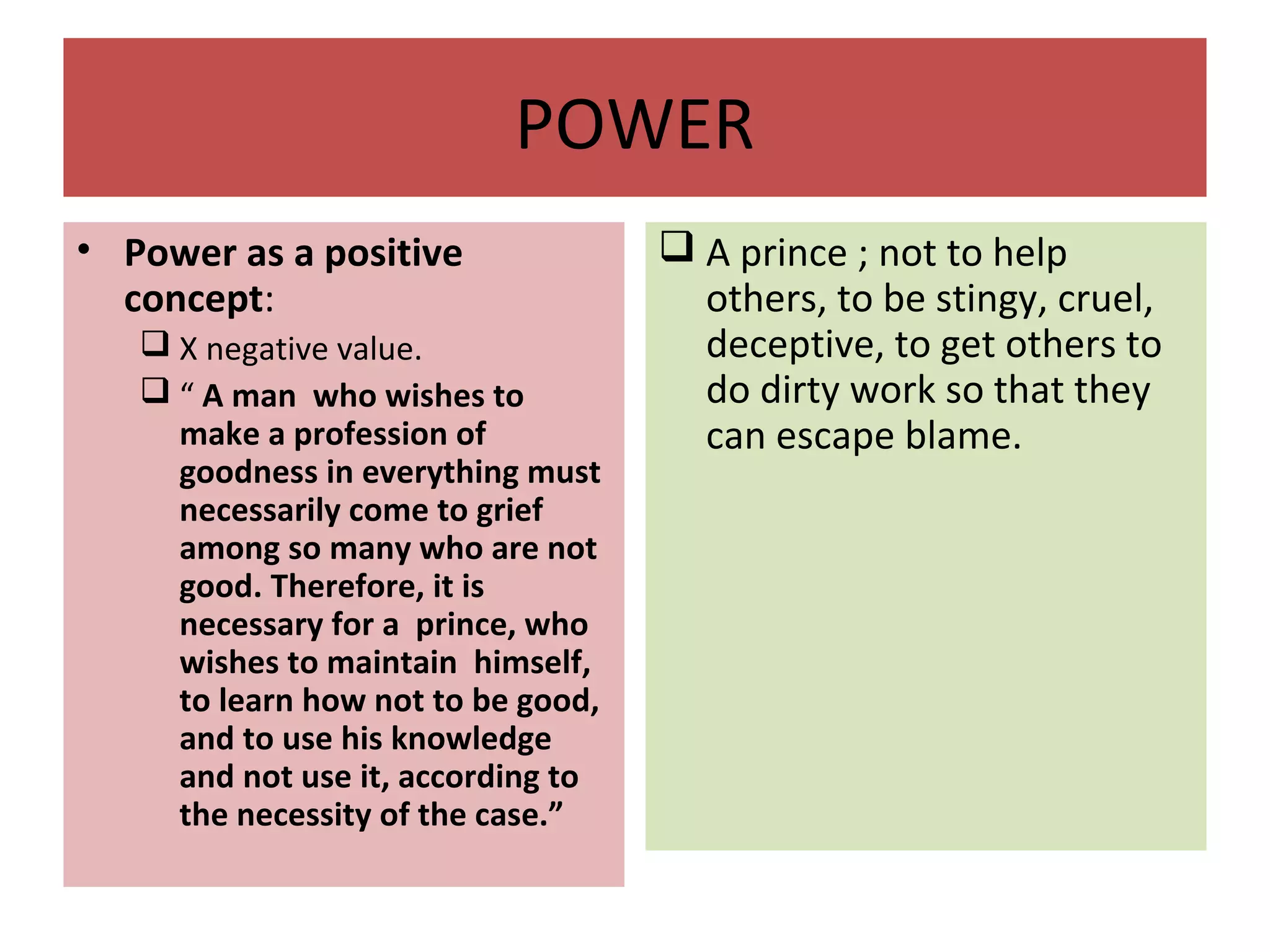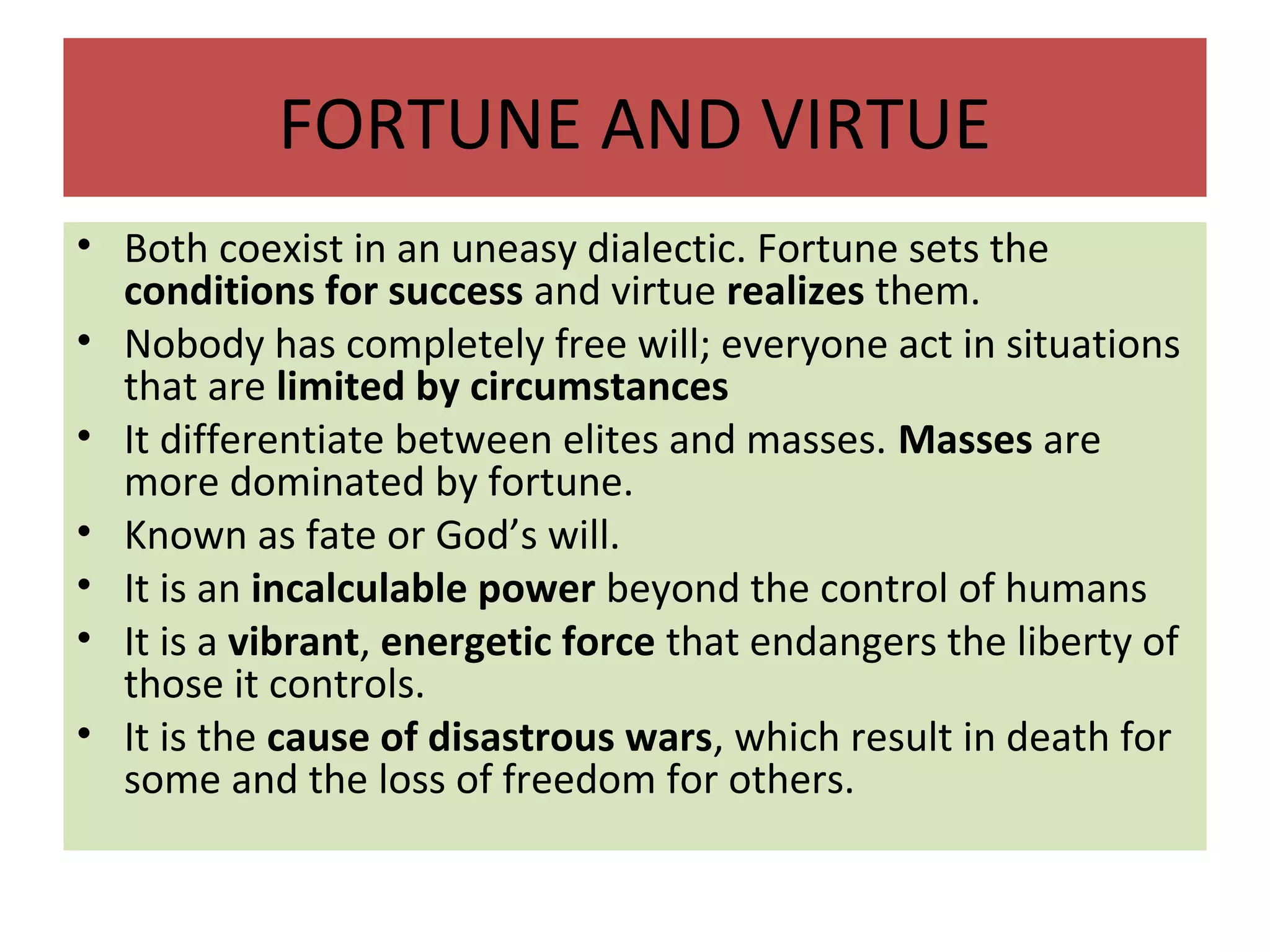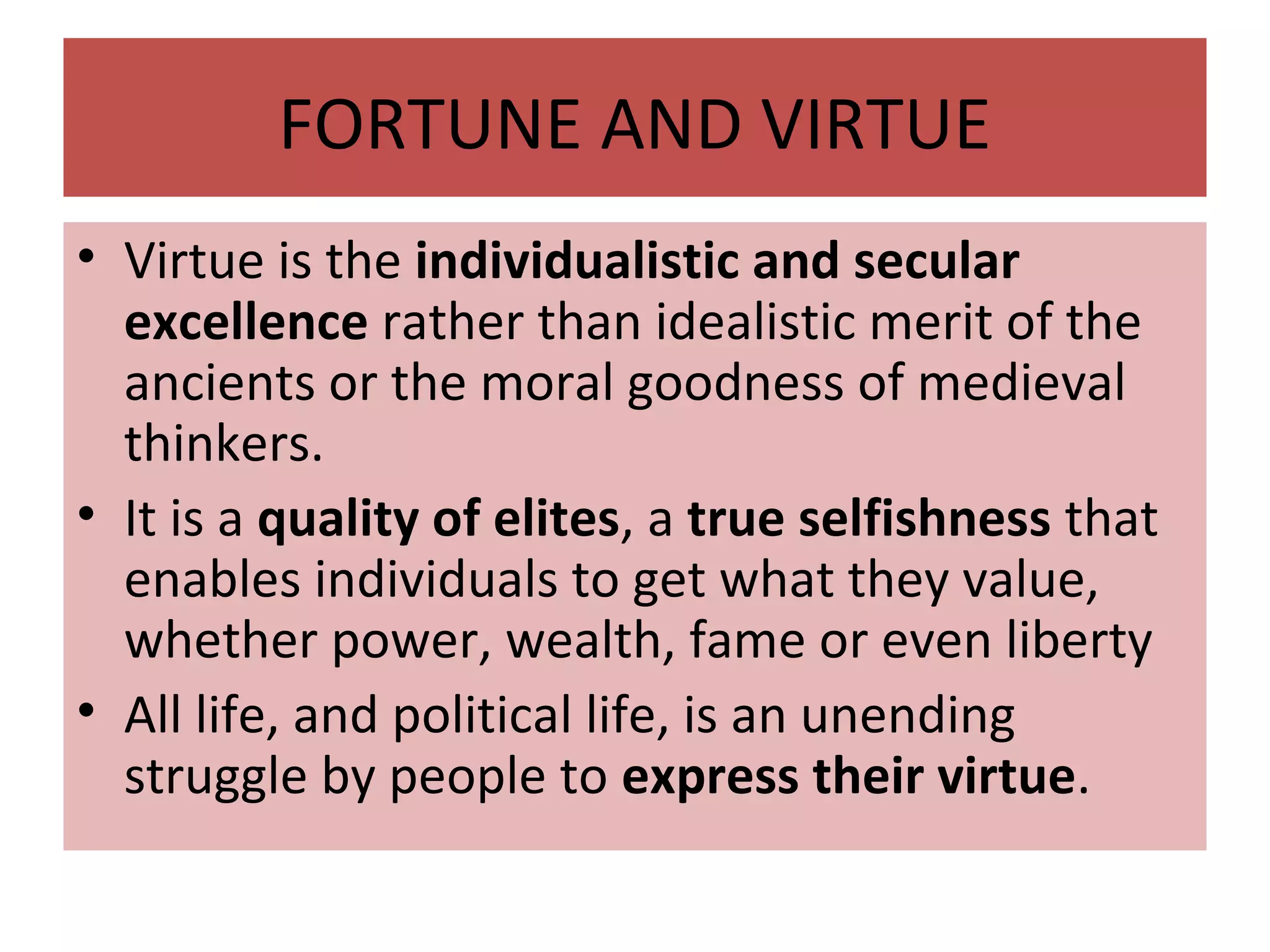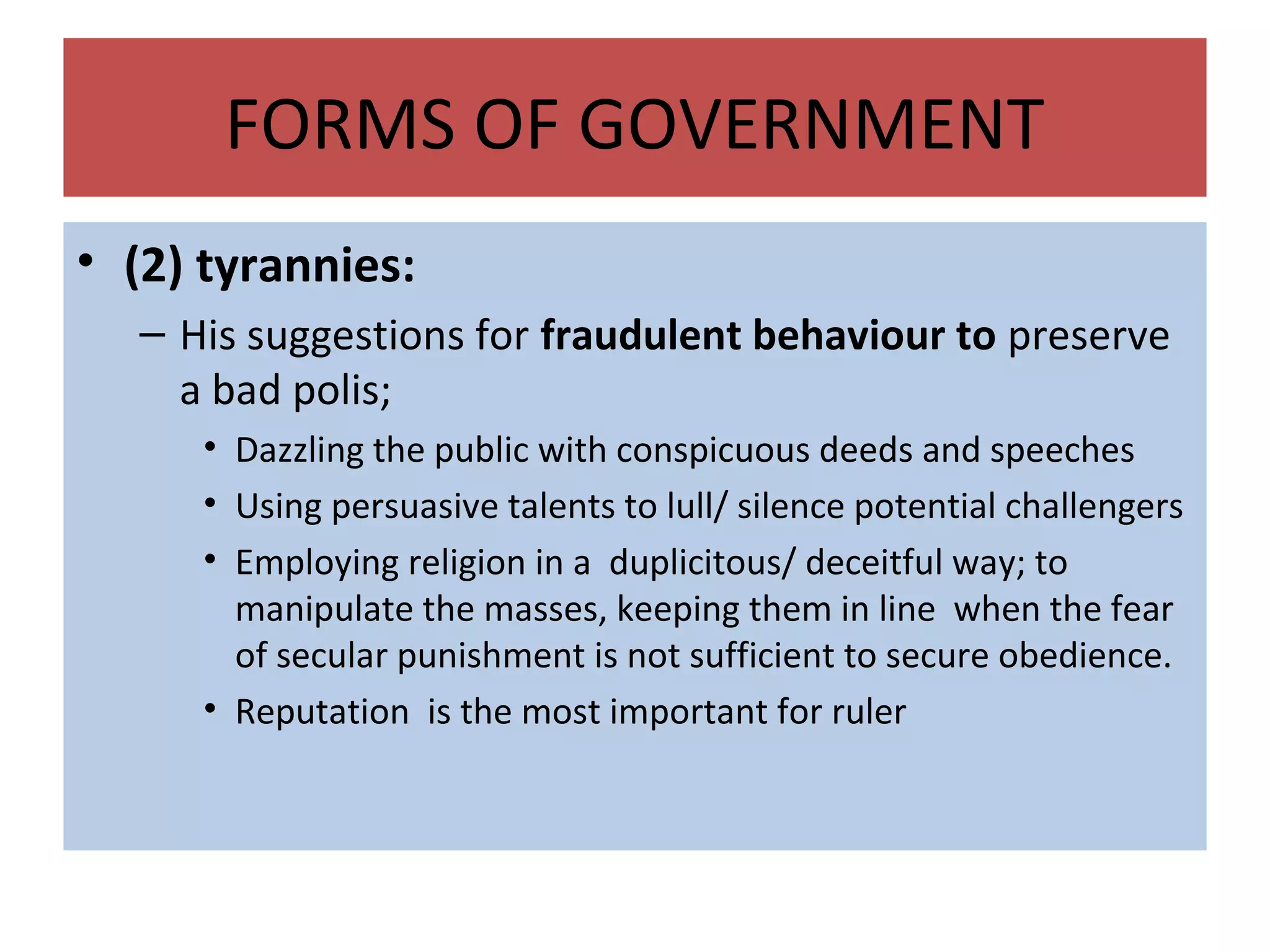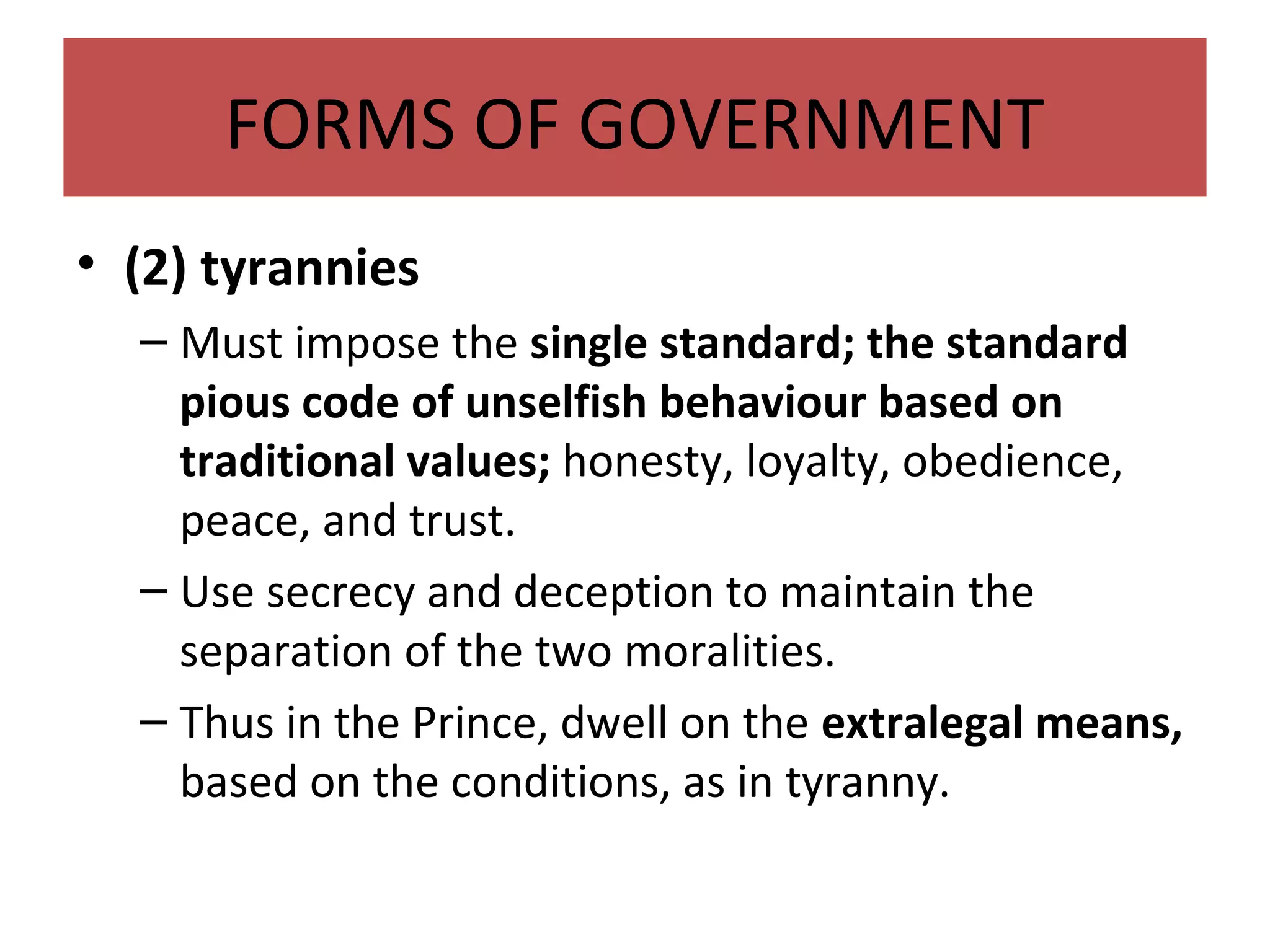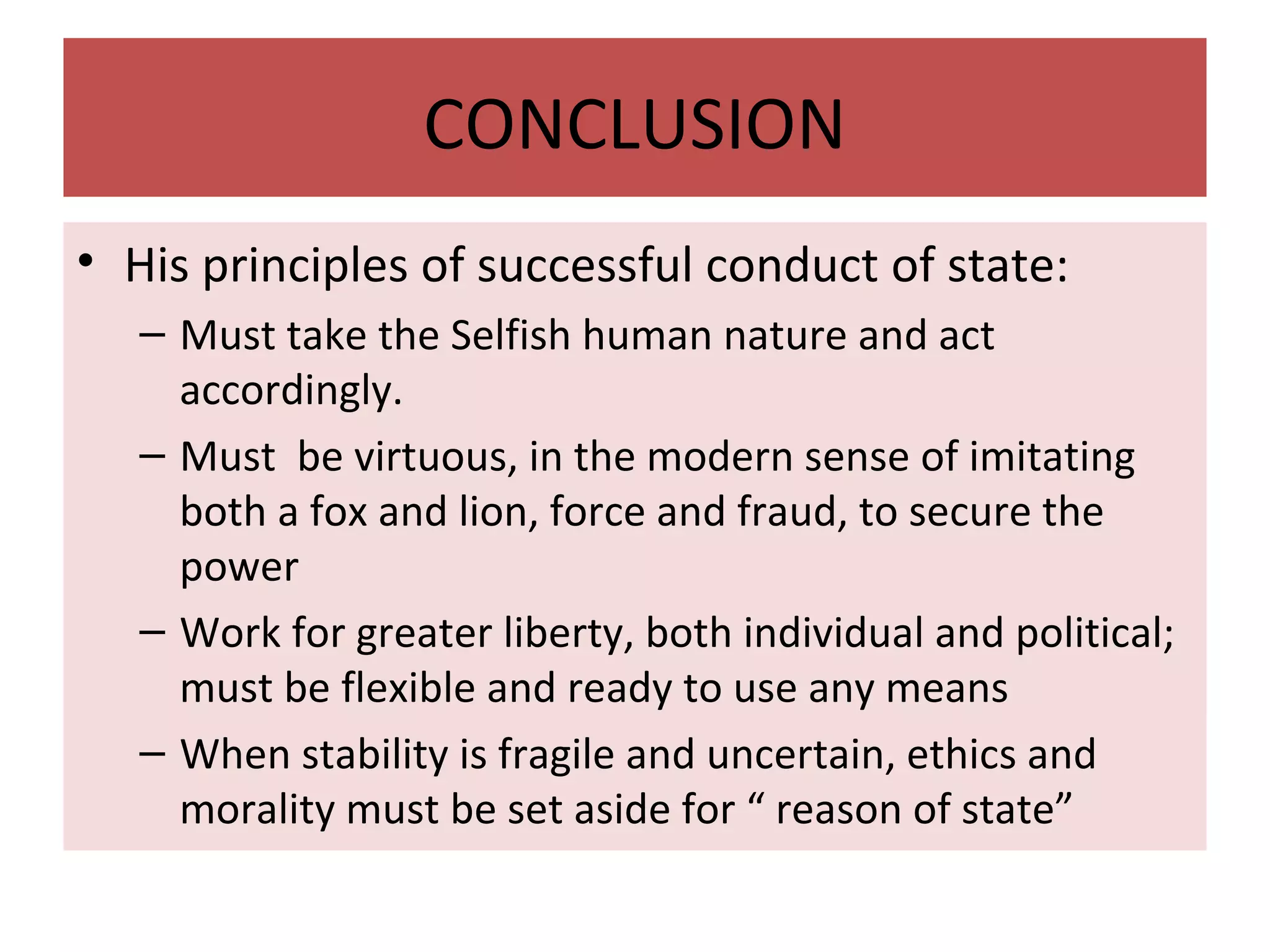Machiavelli lived during the Renaissance and witnessed the transition from medieval to modern politics. He believed that stable government requires recognizing human nature, which is inherently selfish. Politics should be separated from ethics and focus on what works based on human behavior, not ideals. To stay in power, a leader may need to act with virtue through both force and deception. Machiavelli analyzed different forms of government and argued the most stable are republics, while tyrannies require the ruler to do whatever is necessary to remain in power and ensure stability.

